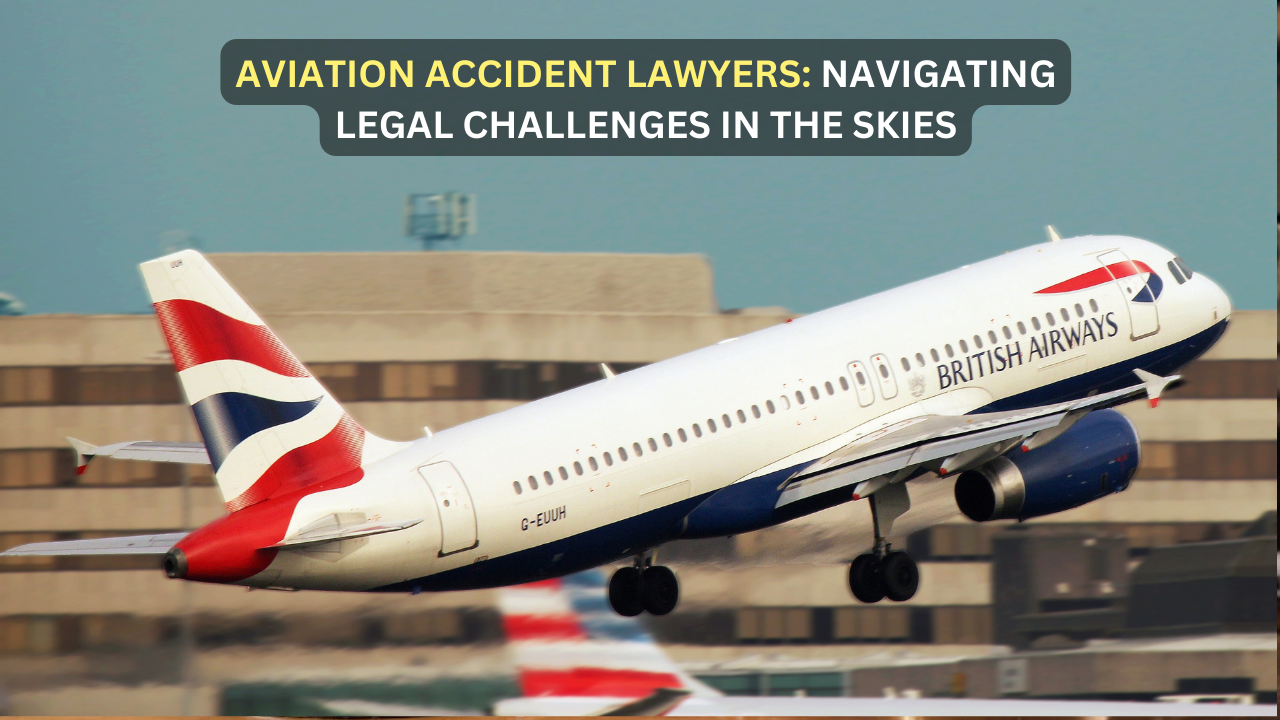The world of aviation is a remarkable testament to human innovation and technological progress. However, despite the industry’s stringent safety measures, aviation accidents can still occur, leading to devastating consequences for passengers, crew members, and their families. In the aftermath of an aviation accident, a complex web of legal challenges emerges, requiring the expertise of aviation accident lawyers. These legal professionals play a crucial role in deciphering the intricate laws and regulations that govern air travel, pursuing justice for victims, and holding responsible parties accountable. This article delves into the multifaceted realm of aviation accident lawyers, shedding light on their roles, responsibilities, and the critical importance they hold within the aviation industry.
The Complexity of Aviation Accidents
Aviation accidents encompass a range of incidents, including commercial airplane crashes, private plane accidents, helicopter crashes, and incidents involving drones. These accidents can result from a variety of factors, such as pilot error, mechanical failure, weather conditions, air traffic control issues, or a combination of these elements. The aftermath of such accidents involves intricate legal considerations that require specialized knowledge and experience to navigate.
Roles and Responsibilities of Aviation Accident Lawyers
1. Investigative Expertise: Aviation accident lawyers delve into the details surrounding the accident, collaborating with aviation experts, accident investigators, and forensic specialists to piece together the sequence of events. This investigation aims to identify the root causes of the accident, which can vary from mechanical failures to pilot negligence or even design flaws.
2. Legal Analysis of Complex Regulations: The aviation industry is governed by a complex framework of international, national, and local regulations. Aviation accident lawyers must possess an in-depth understanding of these regulations, including the Montreal Convention, Warsaw Convention, Federal Aviation Regulations (FARs), and various international treaties. This knowledge is essential for determining liability, jurisdiction, and the appropriate legal remedies.
3. Determining Liability: Identifying responsible parties is a critical aspect of aviation accident litigation. Aviation accident lawyers evaluate the roles of airlines, aircraft manufacturers, maintenance crews, air traffic controllers, and even third-party vendors that might have contributed to the accident. Depending on the circumstances, multiple parties can share liability for the incident.
4. Representing Victims and Families: Aviation accidents often result in tragic loss of life or severe injuries. Aviation accident lawyers advocate for the rights of victims and their families, seeking compensation for medical expenses, pain and suffering, loss of income, and other damages. They provide compassionate legal guidance during a period of immense emotional distress.
5. Pursuing Compensation Claims: Aviation accident lawyers work to build robust compensation claims by collecting evidence, collaborating with medical experts to assess injuries, and calculating economic and non-economic damages. This process involves extensive legal research and analysis to ensure that victims and their families receive fair compensation.
6. Negotiation and Settlement: In many cases, aviation accident lawsuits are resolved through negotiation and settlement discussions. Lawyers on both sides engage in negotiations to reach a resolution that meets the needs of the victims or their families. These negotiations may involve insurance companies, legal representatives of the airlines or manufacturers, and other parties.
7. Litigation and Courtroom Representation: If settlement negotiations fail to yield a satisfactory outcome, aviation accident lawyers take the case to court. They represent their clients in court, presenting evidence, questioning witnesses, and presenting legal arguments to establish liability and seek compensation. Their ability to persuasively convey complex technical information is crucial to the success of the case.
8. Collaborating with Industry Experts: Aviation accident cases often require collaboration with a diverse array of experts, including aviation engineers, accident reconstruction specialists, medical professionals, and economists. Lawyers work closely with these experts to strengthen their case and provide compelling evidence.
9. Advocacy for Regulatory Changes: In the pursuit of justice for their clients, aviation accident lawyers might uncover systemic issues within the aviation industry. This insight can lead to advocating for regulatory changes or improved safety measures to prevent similar accidents from occurring in the future.
10. Handling International Jurisdiction: Aviation accidents can involve complex jurisdictional issues due to the international nature of air travel. Aviation accident lawyers must navigate these complexities, ensuring that cases are filed in appropriate jurisdictions and that relevant international treaties and conventions are applied.
Conclusion
Aviation accident lawyers are a vital force within the legal landscape, championing justice for victims and their families while contributing to the overall safety and accountability of the aviation industry. Their multifaceted roles encompass investigative skills, legal analysis, negotiation prowess, and courtroom advocacy. The complexities of aviation accidents demand specialized expertise that extends beyond conventional legal knowledge. These legal professionals play a pivotal role in ensuring that those affected by aviation accidents receive fair compensation, that responsible parties are held accountable, and that the aviation industry continues to evolve and prioritize safety. As aviation technology advances, the role of aviation accident lawyers remains indispensable in upholding justice in the skies.

